- Georg Johann Schinn
- Martinho Lutero de Galati
- Rossini: Le Comte Ory
- Howard Gardner: Multiple Intelligences
- Christopher Fry
- Erwin Schulhoff: Divertissement
- SKANI
- Arvo Pärt: Stabat Mater
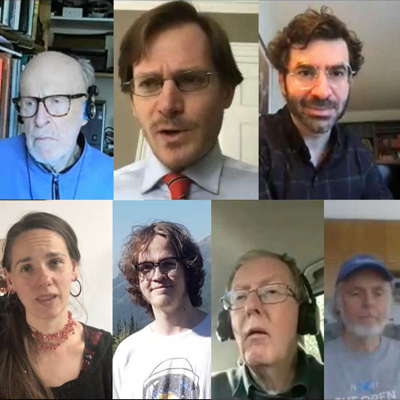 VIDEO PODCAST: John Dante Prevedini leads a discussion about Classical Music and Artificial Intelligence, including contributions from George Coulouris, Michael Stephen Brown, April Fredrick, Adrian Rumson and David Rain.
VIDEO PODCAST: John Dante Prevedini leads a discussion about Classical Music and Artificial Intelligence, including contributions from George Coulouris, Michael Stephen Brown, April Fredrick, Adrian Rumson and David Rain.
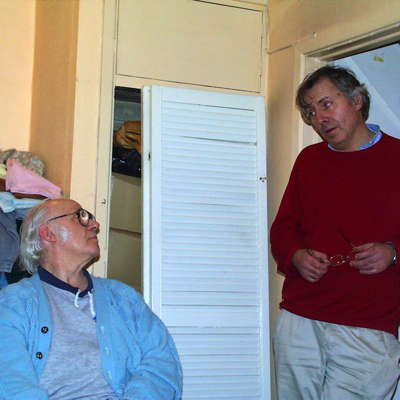 25 YEARS: Classical Music Daily celebrates twenty-five years of daily publication with an hour-long video featuring some of our regular contributors.
25 YEARS: Classical Music Daily celebrates twenty-five years of daily publication with an hour-long video featuring some of our regular contributors.
Baroque Oratorios in Rome
GIUSEPPE PENNISI listens to
selections of music by Alessandro Scarlatti,
Bernado Pasquini and George Frideric Handel
I have occasionally reviewed Baroque Roman music, which is less known than Venetian, Neapolitan or Bolognese Baroque music. It developed a rather special style: terse, dramatic, less lush, less ornate and less flowery than other expressions of Baroque music in the seventeenth and eighteenth centuries. It also had a major influence on Georg Friedrich Händel, who spent his formative years in Rome, producing, inter alia, the splendid oratorio Il Trionfo del Tempo sul Disinganno. Staged like an opera, this is a repertory piece at Zürich Opera, and was seen at the Sagra Malatestiana in Rimini in 2008 and at the Teatro alla Scala in Milan in 2016. Quite a few of these concerts were organized by the Romabarocca Ensemble led by conductor Lorenzo Tozzi, who has been the real pillar of Rome's Baroque music, rediscovering several forgotten composers.
This opened the way to a revival of Rome's Baroque music. Now, in this field, there are also other ensembles. One is the Concerto Romano Ensemble which last year produced Bernardo Pasquini's moving oratorio La Sete di Cristo. Another is the Reate Festival Baroque Ensemble which staged an excellent Ritorno d'Ulisse in Patria by Claudio Monteverdi. These groups, both playing on period instruments, are two faces of the same coin, with the same conductor, Alessandro Quarta, and, by-and-large, the same musicians.
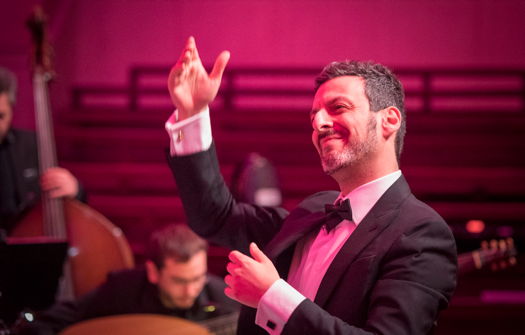
Alessandro Quarta. Photo © 2016 Serge Sang
The Reate Festival takes place every Fall in Rieti, a small provincial town north of Rome with a very elegant theatre. The Festival now has Baroque music as its main theme. This coming Fall, the Reate Festival will revive L'Empio Punito by Alessandro Melani, three hundred and fifty years after its debut in 1669 in the theatre between Palazzo Colonna in Borgo. Interestingly, a different production of this very opera will be also staged in Pisa and Pistoia, where its composer was born in 1639.
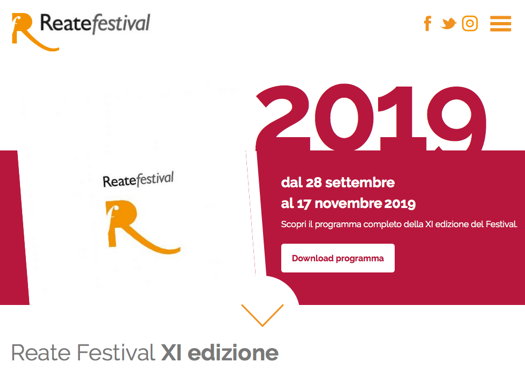
Online publicity for the 2019 Reate Festival, 28 September-17 November 2019
As a prelude to the festival, the instrumental ensemble and the main singers produced a concert of Rome Baroque oratorios on 13 July 2019. Initial plans were to perform in the elegant courtyard of a Renaissance Spanish College. However, the devil put his fingers in the program; at 6pm there was a major storm and the concert was scheduled for 7pm. Thus, the concert moved inside Santa Maria in Monserrato degli Spagnoli, the college's elegant Baroque church. Acoustics were excellent but, as shown in the photos, the church was quite crowded as it is smaller than the courtyard. I was in the audience.
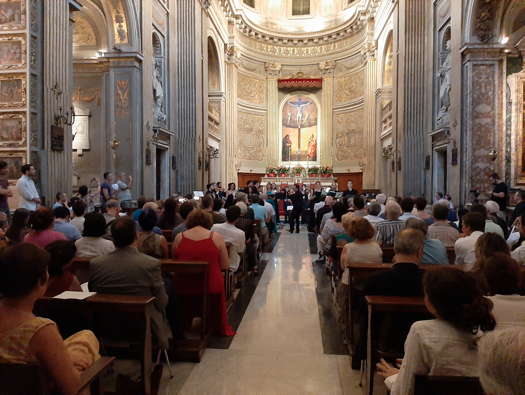
The Reate Festival Baroque Ensemble directed by Alessandro Quarta, performing in Rome on 13 July 2019
The program included excerpts from four oratorios of the late seventeenth and early eighteenth centuries. Oratorios were a very frequent form of musical theatre during those years in Rome when music was promoted by cardinals, such as Benedetto Pamphili and Pietro Ottoboni, and by princes such as Francesco Maria Ruspoli. Although they had very dramatic libretti often based on the Bible, they did not require theatres, elaborate stage sets or costumes for performances. They were usually performed in churches and palaces.
The oratorios were written by Alessandro Scarlatti (San Filippo Neri and Giuditta), Bernado Pasquini (Sant'Alessio) and Handel (La Resurrezione). None of these composers were born in Rome, but they lived and worked here in roughly the same period and shared the same style.
The excerpts from the two Scarlatti oratorios featured interesting recitatives, arias and duets. Especially impressive were the recitative and aria about San Filippo Neri dying and the aria about Oloferne's lust for Giuditta, both sung by tenor Luca Cervoni, as well as the nurse's lullaby, sung by mezzo Lucia Napoli. Bernardo Pasquini's Sant'Alessio was quite dramatic, with enthralling duets and a final heavenly choir when the entire company sings. Handel's La Resurrezione is a grand oratorio; in the concert, we heard Lucifero's entrance aria, sung by bass Giovanni Nanni, the duet of Maddelena and Cleole at the Cross, sung by sopranos Carlotta Colombo and Sabrina Cortese, San Giovanni and Maddalena's arias at the Resurrection, sung by Luca Cervoni and Carlotta Colombo, and the final choral anthem of rejoicing. The singers were young but quite well-trained in this rather difficult repertory.
At times, the orchestral ensemble seemed to cover their voices - most likely because the concert had been planned and rehearsed for a vast open air space and had to be moved inside the church at the last moment.
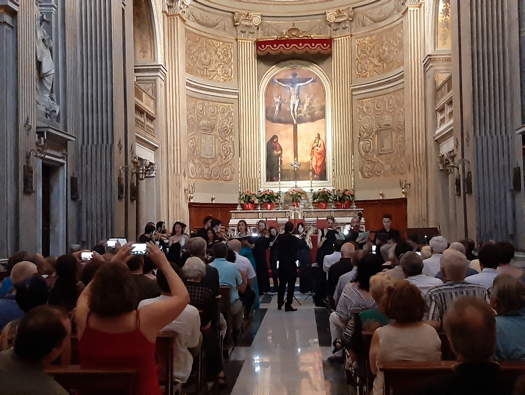
The Reate Festival Baroque Ensemble directed by Alessandro Quarta, performing in Rome on 13 July 2019
The audience applauded after the main numbers and was enthusiastic at the end. The concert was an excellent preview of the Reate Festival.
Copyright © 18 July 2019
Giuseppe Pennisi,
Rome, Italy



